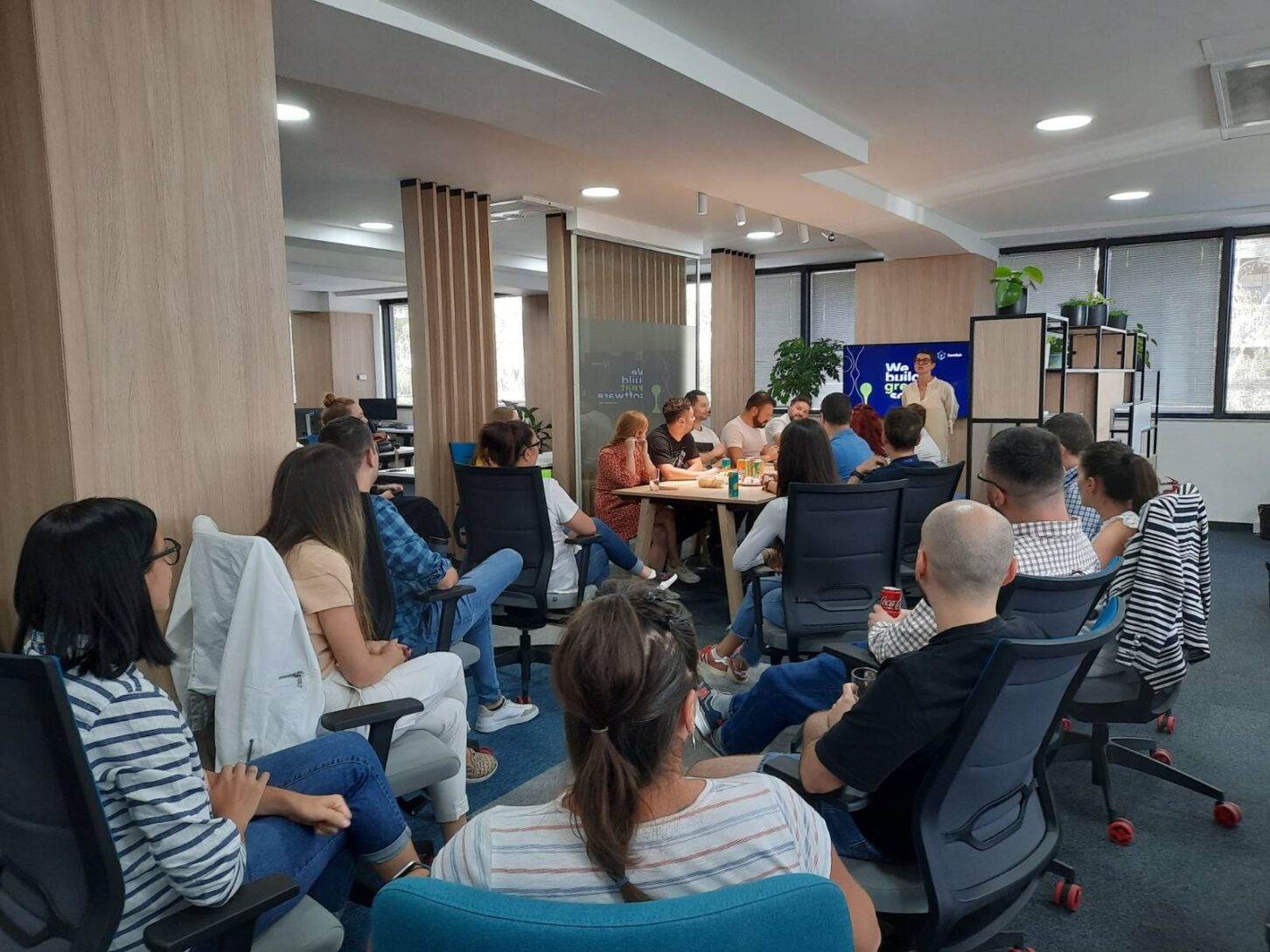Our Culture
Soft Skills Training: Building confidence and communication
Success in the workplace goes beyond technical know-how. In a fast-paced, collaborative environment, being able to communicate effectively, resolve conflicts, and lead with empathy is just as important as knowing the latest technologies. That’s why there’s a strong focus on soft skills training—ensuring every team member has the tools to grow not just as professionals, but as leaders, colleagues, and teammates.

Why soft skills matter
Soft skills are the non-technical abilities that define how we interact, communicate, and solve problems. These skills are crucial for creating a positive and productive work environment where everyone feels valued and motivated to contribute. The soft skills training program is designed to enhance communication, foster teamwork, and promote continuous learning and growth for all employees.
A multi-faceted approach to soft skills
Different roles require different skills, so the training program is structured to meet a wide range of needs. The approach is multi-layered, including in-house workshops, offsite sessions, and ongoing learning opportunities through the Learning Management System (LMS).
Presentation skills for new starters
Every new employee starts their journey with a Presentation Skills Training workshop. This session is more than just public speaking; it’s about breaking down barriers and building connections right from the start.
In this interactive workshop, new team members engage in practical exercises to get to know each other while learning to present their ideas clearly and effectively. The focus is on storytelling, crafting compelling messages, and using body language to enhance delivery. Personalized feedback helps everyone improve their style and adapt to different audiences, whether speaking in small meetings or larger settings.
By the end of the session, each new starter feels more confident sharing ideas, contributing to discussions, and presenting their work.
Regular Soft Skills Workshops: Building better team players
The Regular Soft Skills Training Program covers essential skills needed for everyday success at work. These workshops are hands-on, engaging, and designed to encourage learning by doing. Here’s a closer look at what’s included:
- Feedback & Coaching: Learn how to give and receive constructive feedback that is specific, actionable, and supportive. This workshop helps people understand feedback as a tool for growth and how to deliver it in a way that builds relationships.
- Time Management & Meeting Skills: Learn strategies for managing time effectively and contributing productively in meetings. This module covers practical techniques like prioritizing tasks, setting clear objectives, and ensuring meetings are efficient and respectful of everyone’s time.
- Mentorship & Guidance: Understand how to be an effective mentor or mentee. This workshop explores the dynamics of mentorship and how these relationships can drive growth and development for both parties.
- Conflict Resolution & Problem Solving: Learn tools and strategies for handling conflicts constructively, focusing on communication, empathy, and finding win-win solutions. This training involves real-life scenarios, group discussions, and role-playing exercises.
- Emotional Intelligence & Self-Awareness: Develop self-awareness and learn how to manage emotions effectively. This module includes exercises like mindfulness meditation, reflective journaling, and empathy mapping to build stronger relationships and create a more inclusive workplace.
These workshops use a blended learning approach: theoretical content is delivered through the LMS before the sessions, so workshop time can be dedicated to dynamic, interactive activities like role-playing and group discussions.
Offsite Workshops: Deeper learning and connection
In addition to in-house sessions, offsite workshops are organized to dive deeper into complex topics like leadership, communication, and team dynamics. These sessions bring together Development Managers (DMs) and Team Leaders (TLs) to encourage creative thinking, collaboration, and deeper understanding.
Offsite workshops cover areas such as:
- Leadership and Team Collaboration: Explore different leadership styles and learn how to build trust and foster collaboration across teams. Exercises help participants practice communication skills and develop strategies to enhance teamwork.
- Problem Solving and Stakeholder Management: Learn how to navigate complex problems and manage relationships with various stakeholders. This session focuses on identifying root causes, generating creative solutions, and communicating effectively to achieve goals.
These offsite sessions provide a change of scenery that encourages fresh thinking and engagement. By stepping away from daily routines, participants can immerse themselves in learning and return with new insights and skills.
Leaders as Coaches: Coaching skills for all levels
Every leader is also seen as a coach. The Leaders as a Coach series helps leaders at all levels—from DMs to Team Leaders and Product Owners (POs)—develop coaching skills to support their teams.
This series includes three levels:
- For Delivery Managers: Focuses on building psychological safety and trust within teams, and effective communication with stakeholders.
- For Team Leads and Product Owners: Provides middle managers with tools to manage team dynamics, resolve conflicts, and foster a culture of collaboration.
- Advanced Level: Uses advanced coaching techniques like Neuro-Linguistic Programming (NLP) to enhance leadership skills and effectiveness.
These workshops cover key areas like situational leadership, trust-building, and group coaching, ensuring that leaders are well-equipped to support their teams.
Benefits of soft skills training
The soft skills training program has brought significant benefits. Employees feel more confident in their communication, better equipped to handle conflict, and more engaged in their work. Teams collaborate more effectively, and managers are better able to lead with empathy and clarity.
For example, after the conflict resolution workshop, a team was able to navigate a challenging project where differing opinions could have caused a standstill. Instead, they used the skills learned to facilitate open dialogue and reach a consensus that satisfied everyone.
Continuous learning and growth
Soft skills development is an ongoing journey. The training programs are regularly updated to meet the evolving needs of employees and the challenges of the modern workplace. New modules are being developed to cover emerging topics like remote team management, cross-cultural communication, and digital collaboration.
Our soft skills training is just one of the many ways we invest in our people, ensuring that every day is an opportunity to grow and succeed.